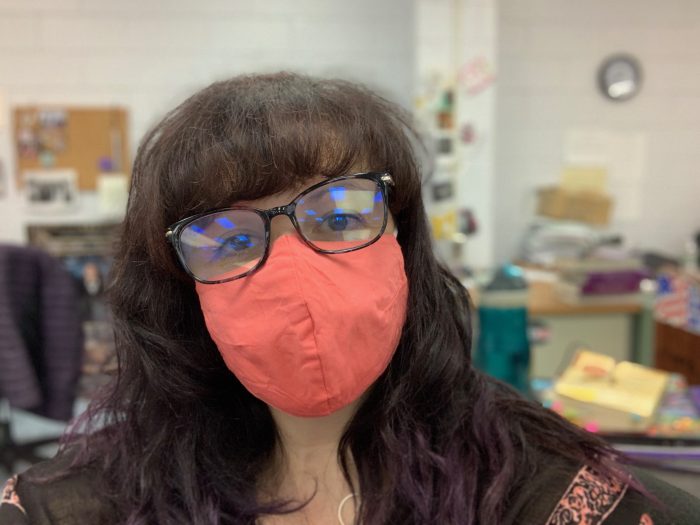Author’s note: Lucky you, this article is part of a series.
~
When I became a teacher in 1994, I loved it, but wasn’t sure how long I could continue teaching.
My track record for staying in jobs, up to this point, wasn’t consistent. It was consistently inconsistent.
After the anxiety of being a first-year teacher faded and the confidence that I was doing a good job took hold, I realized that the best part of my job was connecting with my students and building a relationship with them as humans. That is still my favorite part.
As a high school English teacher, I spend my days reading and talking about books and writing with my students. It’s really the best job out there for me. I’m an avid reader and an author, and I love chatting about books and writing with my students. The best conversations involve the characters in whichever work we are analyzing and what makes them tick.
Writers, as analytical storytellers about life, delve into the whole of human experience, so conversations about literature are like minicourses in emotional awareness, behavioral psychology, and emotional intelligence. These opportunities I create in my classes help us all remember that we are not alone with any of our feelings. Although the details surrounding our experience may differ, the emotional responses are all the same.
This is truly the best part of my job.
Now, it’s the hardest.
I know it’s only October, but so far, this year is a completely different experience. Try as I might, I’m struggling to connect with my students. Teachers everywhere are facing the same obstacles. We are all wearing masks that cover two-thirds of our faces so we don’t know what the kids look like, struggle to attach names to faces, and it’s hard to identify which kids need more support and which need different challenges when we don’t know who they are.
Psychologically, the masks inhibit student conversation. For the most part, they are not talking to each other or even making eye contact, let alone responding to me when I address them or ask a question. The virtual students, who I am teaching at the same time as the ones physically in my classroom, seem calmer and more relaxed and are more often unmuting their microphones to answer questions. And I’m struggling to make connections with kids whose names I know, but whose faces are still a mystery to me.
I know my students are struggling to make sense of everything that has changed in the world in 2020. We, as adults, have some life experience to help us make sense of it all, and even we are confused. Our students lack the life experience—and yet for years have gone to school under the threat of gun violence and have been practicing lockdown drills in addition to fire drills.
They are no strangers to feeling out of control and anxious about their safety. This breaks my heart, but it is a reality.
Remember back when you were a teenager and felt things passionately and deeply? Teenagers (and their hormones) experience emotions, which are all new to them, more intensely than adults. All emotions. Good ones, like love and happiness, and not so good ones, like anxiety and fear. We are all scared, nervous, anxious, and uncomfortable, and unsure what the near future will bring. Recognizing that is the first step toward finding our footing.
What can we all do about this?
We can encourage our students (and children) to acknowledge and trust their feelings and to allow themselves to feel them.
It’s important to feel our feelings (that’s why they are called feelings) and allow ourselves to process them, name them, talk about them, and write about them. It’s normal to feel sad, angry, stressed, frustrated, nervous, and uncomfortable about our lives and the world. That’s where we are right now. I think not feeling those things would be problematic and mean they were not paying any attention.
We can use humor to release our pent-up emotional tension. We can crack jokes and enjoy comedy specials on TV. Laughing protects us from emotional overload.
We should make sure that we all get enough sleep, which will improve our mood, attention, patience, and brainpower. Making sure we get enough rest will bolster our brainpower and regulation of our immune systems.
Physical exercise is important as well. (This is the one I neglect to prioritize.) Not only is physical exercise good for our bodies, but it also releases tension and stress, and hormones that regulate stress and mental energy.
Spend time each day, even if it’s only 15 minutes, doing something you enjoy. This would be a great time to pick up a hobby if you don’t have one. Play is a useful tool in feeling more control of your life because it allows the brain to relax and focus on other, more enjoyable things. Choose an activity that brings you joy like reading, watching a movie, going for a bike ride or a walk, something artistic and creative, or playing a board game that brings you together with others. It doesn’t matter what activities you choose; it only matters that you have genuine fun while doing it.
That’s not going to completely fix any of our circumstances, but taking care of ourselves and reminding our kids to take care of themselves will help us deal with it all. And it’s a lot. Finding ways to support ourselves and those we care about will help us all deal with the uncertainty and challenges with which our educational system is currently fraught.
I am still going to struggle to make connections with my students and try hard to encourage them to open up, but making sure I take care of myself (and urge them to do the same) will help support all of our efforts.
We can all do this.
Every day we show up, we are heroes.


 Share on bsky
Share on bsky





Read 10 comments and reply